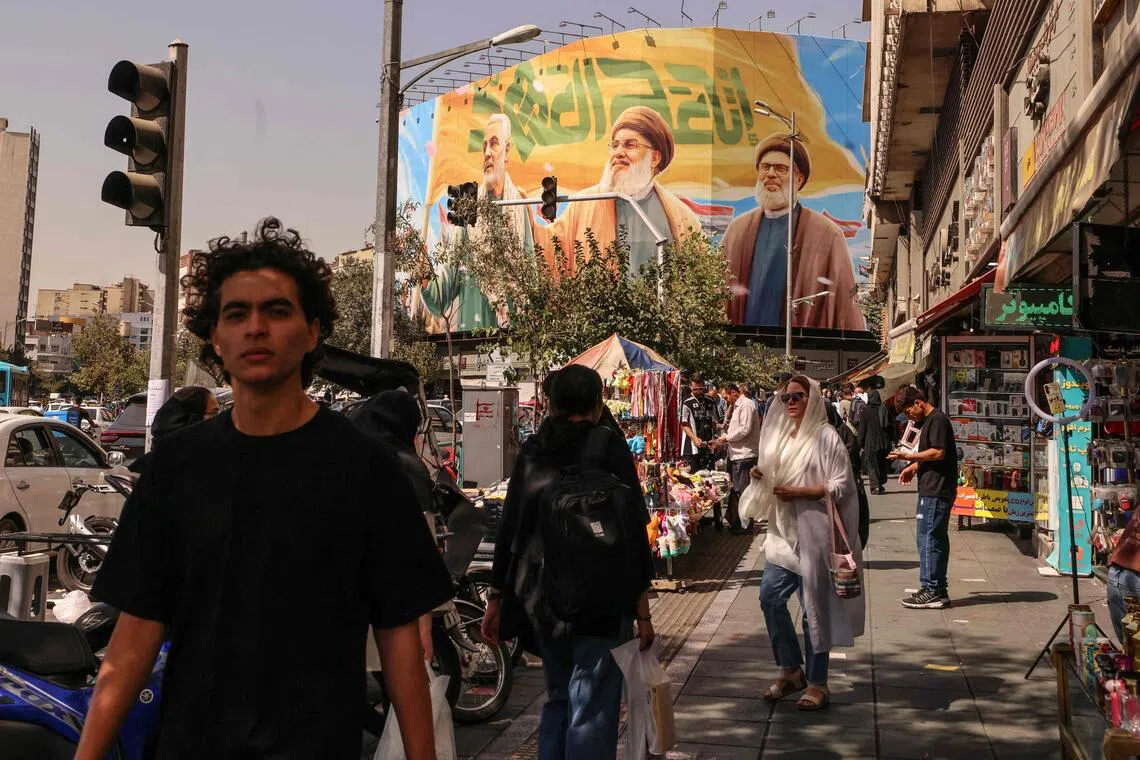‘We’ll be ruined’: Iranians feel strain as sanctions snap back
Sign up now: Get ST's newsletters delivered to your inbox

Iranians are already reeling from soaring prices and the value of their money shrinking.
PHOTO: AFP
TEHRAN – As United Nations sanctions returned in full force
For Ms Helia, a 33-year-old graphic designer in Tehran, the impact was already visible: The price tag on the furniture for her new home jumped higher within three days.
“Even before the dollar went up, prices were rising. From meat to taxis, life is already harder,” she said.
Iran’s government condemned as “unjustifiable”
The measures, which bar dealings linked to the Islamic republic’s nuclear and ballistic missile activities, took effect overnight after Britain, France and Germany triggered the so-called snapback mechanism under the 2015 nuclear accord.
Tehran’s Foreign Ministry urged other countries to refrain from enforcing the sanctions, vowing to “defend its national rights and interests”.
Across the capital, frustration and anxiety mixed as many wondered how much worse life could get.
“We’ll be ruined. Ordinary people really might not be able to live the way they do now,” said Ms Nassim Company, a 56-year-old who works as a researcher in the city.
Student Mehrshad, 19, said Iran would “become economically and politically isolated” following the move.
‘Concessions’
President Masoud Pezeshkian said the United States offered only a brief reprieve in exchange for handing over its entire enriched uranium stockpile, a proposal he called “unacceptable”.
But Mr Navid Moradi, an author in his 70s, criticised the government’s approach in avoiding concessions.
“The government should have continued negotiations and, at some point, it should have given concessions and tried to gain some in return,” he said. “The authorities follow their own course, one they believe is right… but what fault is it of the people?”
The impact on prices was visible as the rial plummeted to a new low in an already squeezed economy, leaving many struggling to make ends meet.
In the morning, the rial was trading at about 1.12 million to the US dollar on the black market, before recovering slightly to 1.1 million, according to currency-tracking websites.
Mr Moradi said 1kg of meat was now 10 million rials (S$13), a considerable fee for people living on the minimum wage.
“How can a family survive?“ he said.
Hardship and hope
For Mr Amir-Abbas, a 19-year-old student dressed in an Iron Maiden T-shirt, the price of his guitar has risen tenfold in recent years, pushing him away from pursuing his interests.
“It was 30 million rials when I bought it. Now, it’s 300 million because we can’t import anymore,” he said, also expressing concerns about the impact on the price of medicine.
Ms Company, the researcher who recently returned to Iran after years abroad, warned that ordinary citizens would bear the brunt of the sanctions.
“Prices, the dollar, gold, everything will rise. People won’t be able to live a normal life,” she said, adding that “crime and child labour may increase”. “I’m even considering leaving again.”
Despite the hardship, Helia held on to optimism.
“We’ve lived through the dollar at 100,000 rials. Now, it’s 1,100,000 rials, and we’re still standing. We live on hope,” she said.
“And that hope is still there,” she said with a smile. AFP


